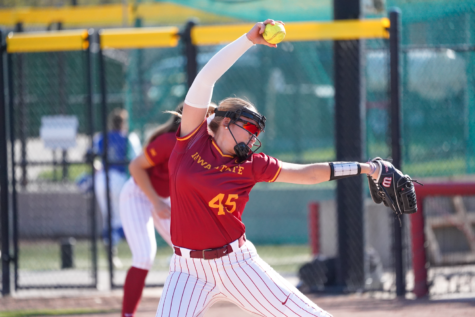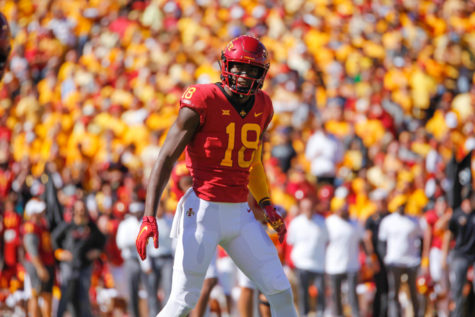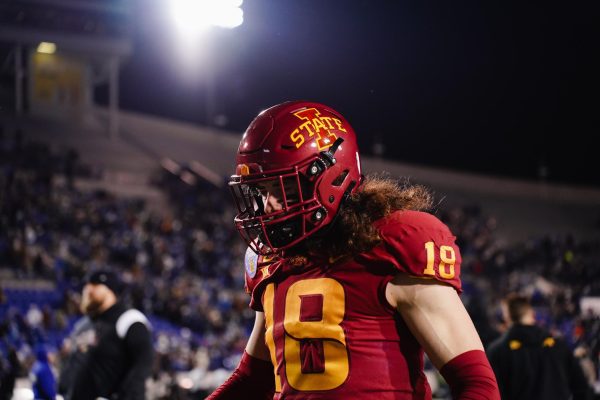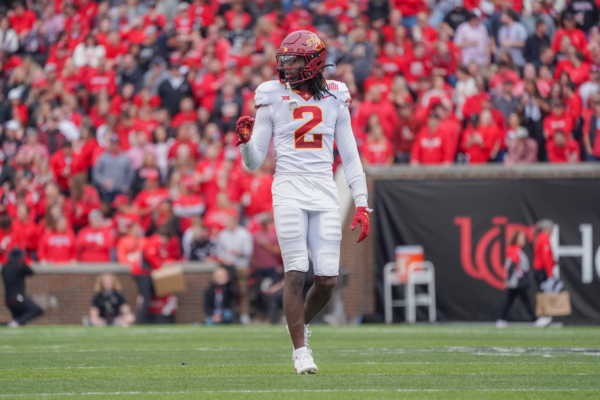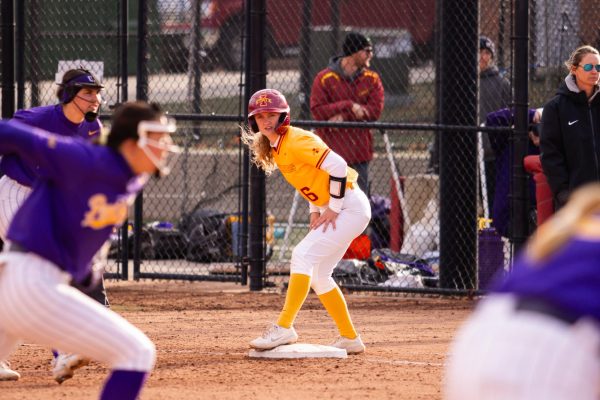Coach’s cover-ups can make matters worse
January 18, 2002
Over break, Cyclone forward Melanie Bremer’s six-game suspension for violating team rules was lifted.
Iowa State head coach Bill Fennelly would not state what rule or rules Bremer violated, saying instead that Bremer did something she shouldn’t have and it would be handled within the basketball family.
No one at the press conference that night pushed the issue. Everyone knew Fennelly didn’t have to say anything about Bremer.
Team rules are team handled.
Suspensions across the country are often handed out without so much a word as to why.
Sure, sometimes the public knows what the athlete did.
Florida’s quarterback Rex Grossman was benched from starting the Orange Bowl for missing curfew, but soon thereafter entered the game, leading the Gators to scores on six straight possessions.
But often, if the violation is more severe, we never hear about it. (Which is, in itself, tricky to discern because if the information is withheld, how are we to know the violation was more severe than say, staying out too late?)
Yet there are occasions when the public knows what team rule was violated because, sometimes, coaches aggrandize.
According to a report from the Minneapolis Star Tribune, former Minnesota Golden Gophers women’s basketball coach Cheryl Littlejohn brought the television cameras to a practice in 1998.
Some players had been drinking the night before and Littlejohn wanted to show the media she was as disciplined as Rocky Balboa in the training room.
“We were saying, `She’s not really doing this, is she . getting all dressed up for the TV cameras here to watch her put the bad girls through practice?'” former player Theresa LeCuyer told the Tribune.
Unfortunately for LeCuyer, Littlejohn was. Seven players were suspended for violating team rules.
But Littlejohn’s actions are an aberration among coaches.
It’s difficult to tell what exactly team rules are.
Sports Illustrated ran a graphic in its Jan. 7 college football wrap-up issue called “The All-Reprimand Team.”
Of the 19 players who missed bowl game minutes, if not the game itself, three were penalized for breaking team rules.
Not a significant number.
But what is significant is what is not a universally accepted team rule. Players were suspended for drug-related arrests. And car theft. And poor grades. And unbecoming behavior. And underage drinking.
In addition to the team rules.
Coach Fennelly says rules between teams vary. He says the violations are handled in-house so as not to embarrass the athlete.
That may be true, but with a publicly known violation, it is often the coach who is embarrassed, the coach who is seen as allowing Mardi Gras to move to his or her campus.
I think Littlejohn at Minnesota was smart. She knew she was the one who would take the rap for any wrongdoing.
But it shouldn’t be that way.
It is the athlete who is the freethinking, free-willed adult.
Outside of their sporting realm, no one is forcing him or her to do anything.
I don’t expect ISU head football coach Dan McCarney to monitor the comings and goings of 100 football players any more than I expect ISU head men’s basketball coach Larry Eustachy to monitor 12.
But if the athlete or athletes have a temporary frontal lobotomy and do something dumb, he, she or they should be punished accordingly.
The suspension for violating team rules serves that purpose.
But if he, she or they are already suspended, why can’t the public know why?
If we laud college athletes’ accomplishments, shouldn’t we also criticize their delinquencies?
It is the athlete who ultimately decides to break that team rule, no matter how severe it is.
Wait, wait, wait, you say.
In 1999, Iowa wide receiver Kahlil Hill was suspended for the entire season for violating an undisclosed team rule.
So did the athletic department find out about something before the police department? We don’t know. And I want to repeat that.
I don’t know what Hill did either.
And that’s the problem because not specifying violations for team rules can raise speculations as wild as fighting or as tame as skipping class.
Fennelly hopes if there is ever any criminal wrongdoing in regard to athletes, the proper authorities will be informed.
I hope so too. But I doubt Hill just missed a curfew.
Paul Kix is a junior in journalism and mass communication from Hubbard. He is sports senior reporter for the Daily.








